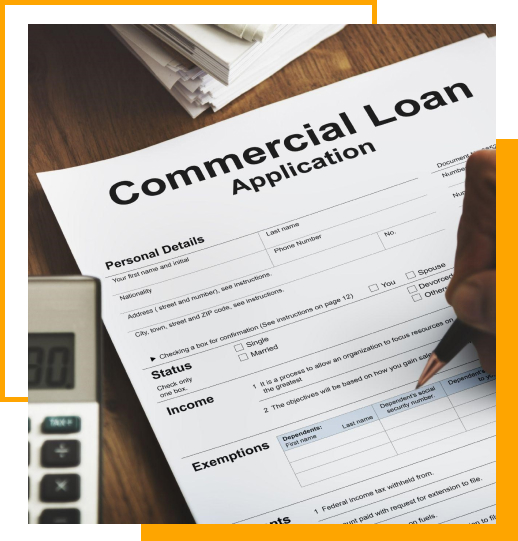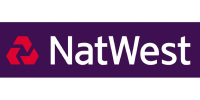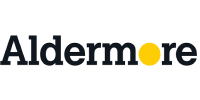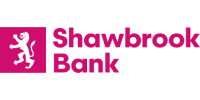Commercial loans

Commercial Loans
Your search for commercial loan solutions ends here! Our comprehensive commercial loan guide is designed to assist you in navigating the loan process and finding the perfect financing solution for your business. By reading this guide, you’ll gain valuable insights into commercial loans. Should you require further assistance, feel free to contact us. We’re here to help!
A commercial loan is a type of loan specifically designed for businesses. These loans are typically used to purchase commercial property, finance capital expenditures, and fund other business operations and investments.
A commercial loan used for:
- Purchase commercial real estate
- Finance capital expenditures
- Fund business operations
- Fund investments
- Capital to support growth and expansion
Advantages of a Commercial Loan or Mortgage
A commercial loan is a versatile type of loan used for various purposes such as buying commercial property, financing business expansions, or gaining equipment. They offer advantages including:
Lower interest rates
Commercial loans can have lower rates compared to other types of financing, helping businesses save on borrowing costs.
Bespoke underwriting
Commercial loans offer tailored terms based on financial circumstances and collateral, allowing for potential negotiation.
Extended terms
Commercial mortgages provide longer repayment periods, making them suitable for commercial property financing and allowing businesses to spread out costs.
Specialist lenders
Commercial loan specialists offer flexible terms, including interest-only options and higher borrowing amounts, beyond what traditional banks provide.
Flexible payment structures
Specialist commercial lenders may offer custom payment structures, such as initial interest-only periods, accommodating businesses’ budgetary needs.
Mortgage Advice..
Thinking of getting a mortgage? Our experienced team of skilled mortgage advisers are here to offer the essential guidance you require. Relying on our comprehensive understanding of the mortgage market, we’ll ensure you secure the perfect mortgage to suit your specific situation.

Types of Commercial Loan
Commercial loans are an essential source of financing for businesses, offering various options to meet their needs. From term commercial mortgages to asset financing, businesses can find suitable loan options. Let’s explore the different types briefly:
Commercial Term Mortgage:
A mortgage for property financing, either for business occupancy or investment.
Business Overdraft:
Flexible funding provided by the bank, usually requiring some security.
Start-up Loans:
Unsecured loans up to £100,000 offered to new businesses for their initial years.
Commercial Development Loan:
Used for purchasing or constructing commercial properties, with short-term structures.
Merchant Cash Advances:
Upfront funds provided in exchange for a portion of future credit/debit card sales.
Bridge Loans:
Short-term loans that bridge the gap between current and desired financial situations.
Commercial Mortgage or Commercial Loan Quote
Commercial mortgages and commercial loans have customized interest rates based on individual financial circumstances and offered security. To determine borrowing capacity and monthly costs, it’s advisable to consult a specialist finance advisor with commercial market expertise.
The way you present your finances and business plans influences lender offers. Lenders also have preferences for specific commercial sectors. For instance, one may favor industrial units while another prefers dentist practices.
Our skilled commercial loan advisors can optimize your application presentation to secure favorable lending terms from commercial lenders. Our advisors possess industry qualifications, experience, and operate under FCA-regulated practices. Although most commercial mortgages are not FCA-regulated, our advisors maintain the same high standards.

Commercial Loan Interest Rates
Commercial loan interest rates are influenced by factors such as creditworthiness, loan type, duration, size, and economic conditions.
Rates vary based on the loan type, with secured commercial mortgages typically ranging from 5-10% and unsecured business loans carrying higher rates.
It’s important to compare options and consider associated fees like application, legal, valuation, arrangement, and advice fees. Checking your credit score before applying is crucial, as it affects the interest rate offered.
Commercial Loan Requirements
When applying for a commercial loan, businesses must meet certain requirements and provide specific documents. Here are the key points to consider:
- Financial Statements: Detailed income statements, balance sheets, and cash flow statements are necessary for the loan application
- Tax Returns: Most lenders require at least one year’s worth of business tax returns.
- Credit History: Depending on the loan type, lenders may request personal or business credit history from owners.
- Collateral Proof: Lenders often ask for collateral, such as property or assets, to secure the loan.
- Business Plan: A well-written plan outlining how the loan will be utilized and benefit the business is important.
- Identity Verification: Each owner must provide proof of identity, such as a passport or driver’s license.
- Additional Documentation: Other documents like business licenses or permits may be requested.
FAQs: Commercial Loan
Most frequent questions and answers about Commercial Loan
To get a commercial loan, you’ll need to have a good credit score and a viable business plan. You will also need to provide financial statements, tax returns, and other documents that demonstrate your ability to repay the loan. Once approved, you may be asked to provide collateral or personal guarantees for the loan
Commercial loans are a form of business financing that allows companies to borrow money for a variety of purposes. These loans can be used to purchase equipment, finance property, or cover other large expenses needed to keep the business running smoothly.
When applying for commercial loans, businesses must provide detailed information about their current financial situation and plans for using the loan money. Lenders will also evaluate the business’s credit history and ability to repay before approving the loan.
Commercial loans typically offer higher interest rates than personal loans but can be a great way for businesses to access capital for short-term or long-term needs. The repayment terms of commercial loans vary by lender and are typically based on the size of the loan, the purpose of it, and the borrower’s creditworthiness.
Repayments on commercial loans are usually made in monthly instalments over a set period. Depending on the lender and type of commercial loan, businesses may also be required to provide collateral or other security for the loan.
This is to protect lenders from default in case the business is unable to make its repayment. Understanding the terms and conditions of commercial loans is an important part of making sure businesses can secure the financing they need.
No, commercial loans typically cannot be used to purchase residential properties. These types of loans are intended for business use only. If you have a mixed-use property, e.g. if you run a business from your own home, a specialist residential lender may consider this if the commercial use is the smallest part of the overall usage.
Generally, you’ll need good credit and a solid business plan to qualify for a commercial loan. You may also need to provide collateral or personal guarantees for the loan. A good commercial mortgage broker can assist you in making the process easier.
Yes, interest paid on commercial property loans is generally tax deductible. However, you should check with your accountant or a tax professional to confirm your eligibility and how it will apply to your specific situation.
Yes, some lenders offer 30-year commercial loans. However, terms and conditions may vary depending on the lender and your creditworthiness.
Yes, you may be eligible for tax benefits with a commercial property loan. Interest payments on the loan may be tax deductible, and other types of deductions may also apply. Check with your accountant or a tax professional for more information about how this applies to your specific situation.
Our lenders :









